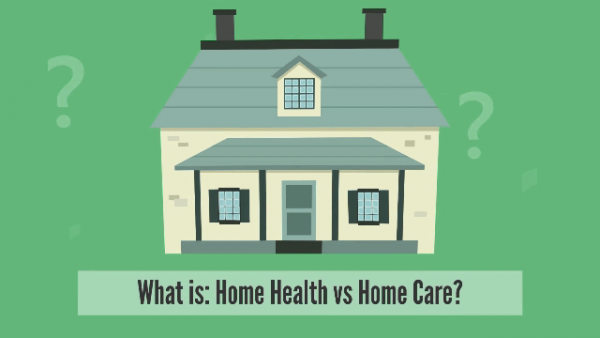
As our parents age and become frail, we start looking at different care options. If you or your sibling is thinking of moving mom in with you, carefully consider the costs. Know what you’re getting yourself into.
Most adult children are usually motivated by a deep love for their parent. They’re committed to providing the best. They feel no one can do a better job of caring than family.
While you may agree with that sentiment, be sure to examine your motives. Before making any commitment, start by answering your ‘why’.
Is it a philosophical belief that ‘family takes care of their own’? Or do you hate seeing all mom’s assets spent on a facility? Or do you feel obligated because of promises made long ago? Or do you feel guilty and want to live up to your parent’s expectations?
Whatever your reasons, clearly define them. They’ll help you create healthy boundaries and expectations of your own.
After you’re clear about your ‘why’, consider the impact of multi-generational living on your finances, relationships, and personal space.
Financial Costs

People often under-estimate the financial costs of caring for a parent. And expenses go up as they age. These costs include possible income loss, remodeling, and hired care.
Potential income loss
People often under-estimate the financial costs of caring for a parent. And expenses go up as they age. These costs include possible income loss, remodeling, and hired care.
Studies show that:
- 33% of working women decreased work hours
- 29% passed up a job promotion, training or assignment
- 22% took a leave of absence
- 20% switched from full-time to part-time employment
- 16% quit their jobs
- 13% retired early
Considering that, think about whether someone will have to quit work when mom or dad moves in. Can your family afford the reduced income plus the increased costs of food and utilities? Will you parent contribute to the household expenses?
Potential remodeling costs
First assess your home for safety, accessibility, and logistics. You may decide to expand your home, remodel a bathroom, build ramps, or build a separate “granny pod”.
Do your research on estimated costs. Can you afford it? Will it increase the value of the property?
Will your parent contribute financially to the remodel? If so, what reimbursement will they get if you sell the home? And if something unexpectedly happens to your parent, will you reimburse their estate?
Potential care costs
Your mom might move in with you while she’s still cognizant, ambulatory, and continent. But as she ages, her abilities will likely change. If you’ve never been a caregiver, you’ll be surprised by how hard it is.
Family caregivers often don’t realize how stressful care giving is. It’s a 24 x 7 job. You’re constantly taking on new care tasks – ones you’re not trained for. They often report feeling exhausted and depressed. Caregivers report finding it difficult to maintain a healthy balance in their lives.
Family caregivers underestimate how much support they’ll need. And for many, it’s hard to ask for help. They often put unrealistic expectations on themselves. They try meeting every need and be the ‘perfect’ child.
Respite breaks are essential for a caregiver’s well-being. So ask yourself, ‘Who else can help with increasing care demands’? Family, siblings, relatives?
Can you or your parent afford hired in-home caregivers? If not, are there other family members who can chip in?
Get a realistic picture of what it means to be a caregiver.
- Read personal stories from caregivers.
- Watch how-to videos on YouTube. Things like how to safely transfer someone, give showers, and help with incontinence.
Relationship Costs

Moving a parent in with you is a family decision. Even if you’ll do most of the work, everyone must be on-board. Many marriages have split over the change in duties, roles, and relationship dynamics.
Siblings and extended family
This includes having a conversation with siblings and other extended family. It’s an emotional time. You’re acknowledging your parent is aging and needs help. And you won’t be able to do it alone. Find out who’s willing to help and how.
Additionally, prepare for sibling disagreement. Past roles and relationships can come into conflict. Your motives will be questioned. Make sure everyone’s viewpoint is heard.
Try to keep the discussion focused on the well-being of your parent. And expect everyone to have different ideas about how to best meet those needs.
A word of advice: consider hiring an elder mediator, social worker, or elder advisor to act as a guide.
Your relationship with your parent
Similarly, consider the relationship you’ve historically had with your parent. Has it been easy going or fraught with tension? Has your dad been controlling? Or your mom been a complainer? Have you felt they’re impossible to please?
If that’s the case, it probably won’t change. In fact, living with your parent as an adult will likely bring up a lot of emotional baggage from the past.
When 3 generations or more live under one roof
What’s more, if children still live at home, they may need extra attention. Especially if they’re asked to give up their room for grandma. And what about if you have a blended family? Will your stepchildren cope?
Living under one roof won’t be like in the TV series, The Waltons. Consider your parent’s attitude about kids. There’s a big generation gap between acceptable lifestyles. Your dad or mom might voice strong opinions; which likely won’t go over well. Are you ready to act as peacekeeper?
Factor in illness or dementia
And your kids will need help understanding what’s happening if your parent has an illness or dementia. Irregular behavior by a grandparent may scare or embarrass your children.
Let your kids know that they are not the cause of their grandparent’s possible anger, weeping, or fear.
Seek out books and videos from the library. Read them together and discuss the questions that come up. Talk about ways they can deal with the situation.
Your parent's social needs with peers
While we’re discussing relationships, think about how living with you will affect your parent’s friendships. Will their friends feel comfortable visiting? Will you take your parent to the senior center or church groups for socialization?
Finally, think about if your parent will get lonely and isolated if you’re still working outside the home. Plan ways they can keep up the activities they enjoy.
Costs on Your Space, Time, & Routine

For most of us, our home is our refuge. It’s where we relax and turn off the world. When your parent moves in, you may feel your space invaded. Your home is no longer your home.
Most likely you’ll find your schedule and time now revolves around someone else’s needs. You’ll cook differently. You’ll find a corner of your mind is always listening in case mom needs something.
Interruptions
For instance, if you work from home, anticipate interruptions. A knock on the door. The intercom beeping. Dad has a question or needs help in the bathroom.
Similarly, if you and your spouse are watching a movie how will you feel about your parent joining you or interrupting you?
Privacy and personal space
Your parent doesn’t need to know everything that’s going on in your personal life. Set boundaries and expectations. This is a role reversal and you may feel uneasy doing it. But this is the time to work it out or readjust your thinking.
While you are your mother’s daughter (or son) you’ve both evolved over time. You may not share the same opinions, standards, politics, values, or belief systems now. Agree to disagree. Steer clear of criticism and judgement.
In Summary
Without a doubt, moving your parent in with you (or your moving in with them) can bring about a closeness you never had before. It’s an opportunity to put love into action.
On the other hand, it’s not for everyone.
Carefully think about why you want to be their primary caregiver. There’s no guilt if you don’t choose this path in order to love and care for them.
Then factor the financial, relationship, and personal space costs.
Leave a comment below to let us know how this article helped you.
We have a library full of great information to help you navigate the aging process. Be sure to check out these other articles too.

Home Health or Home Care?
Understand the Differences And Plan With Confidence! Ed’s mom, Ethel, is

Leave a Reply